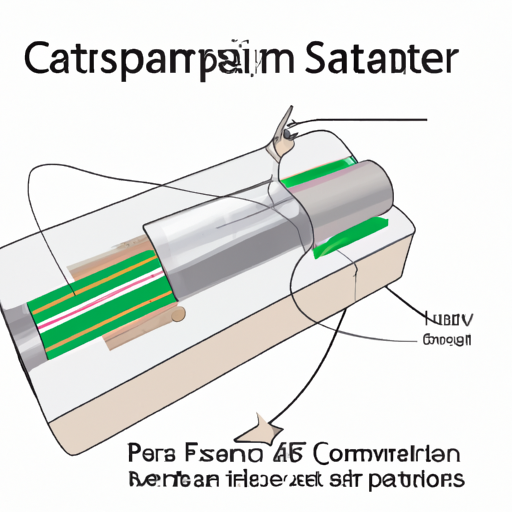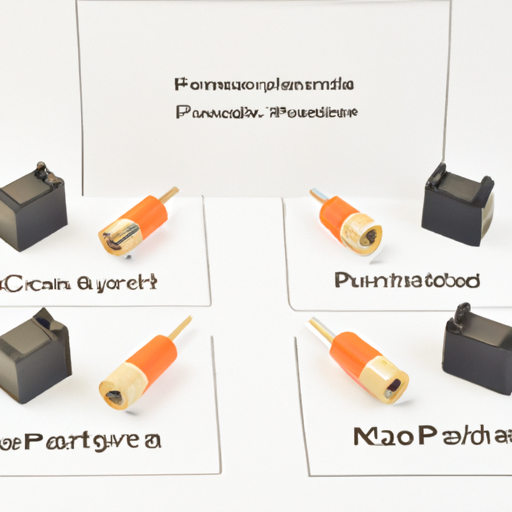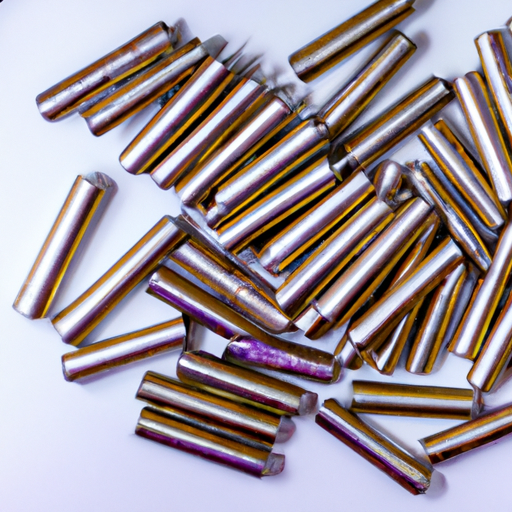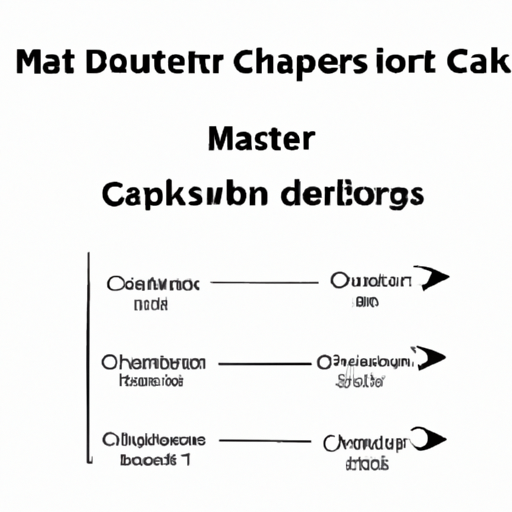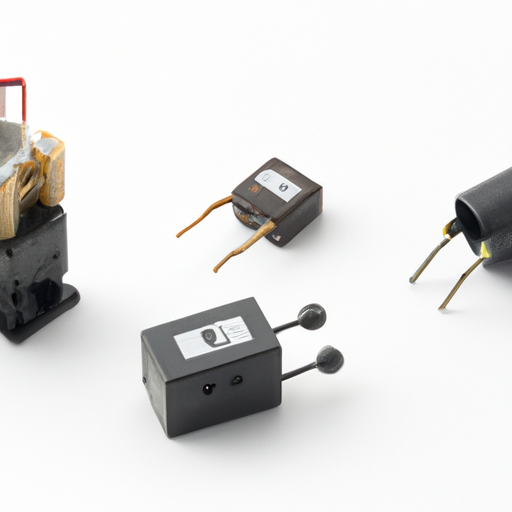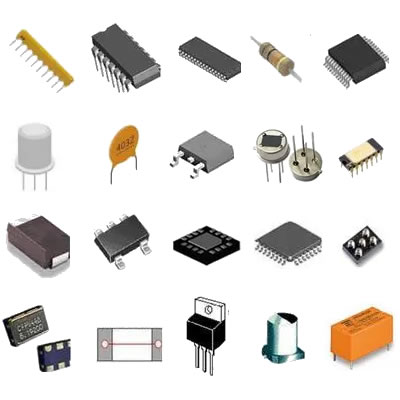Mainstream compensation capacitor product series parameters
Mainstream Compensation Capacitor Product Series Parameters
I. Introduction
A. Definition of Compensation Capacitors
Compensation capacitors are electrical components designed to improve the power factor in electrical systems. They store and release electrical energy, helping to stabilize voltage levels and reduce losses in power systems. By compensating for reactive power, these capacitors enhance the efficiency of electrical systems, making them a crucial element in modern electrical engineering.
B. Importance of Compensation Capacitors in Electrical Systems
In an era where energy efficiency is paramount, compensation capacitors play a vital role in optimizing the performance of electrical systems. They are essential in various applications, from industrial machinery to renewable energy systems, ensuring that power is used effectively and sustainably. By mitigating issues such as voltage drops and harmonics, compensation capacitors contribute to the overall reliability and longevity of electrical equipment.
C. Overview of the Article's Purpose
This article aims to provide a comprehensive overview of mainstream compensation capacitor product series parameters. We will explore the functionality, applications, key parameters, and selection criteria for these capacitors, as well as future trends in the industry. By the end of this article, readers will have a clearer understanding of how to choose the right compensation capacitor for their specific needs.
II. Understanding Compensation Capacitors
1. Functionality
Compensation capacitors work by storing electrical energy in an electric field, which can then be released back into the circuit when needed. This process helps to balance the reactive power in the system, reducing the overall demand for reactive power from the grid. By doing so, they improve the power factor, which is a measure of how effectively electrical power is being converted into useful work output.
2. Types of Compensation Capacitors
There are several types of compensation capacitors, including:
Fixed Capacitors: These have a constant capacitance value and are typically used for power factor correction in industrial applications.
Variable Capacitors: These allow for adjustable capacitance, making them suitable for applications where load conditions may change.
Power Factor Correction Capacitors: Specifically designed to improve the power factor in electrical systems, these capacitors are often used in conjunction with inductive loads.
1. Power Factor Correction
One of the primary applications of compensation capacitors is power factor correction. By compensating for the reactive power drawn by inductive loads, these capacitors help to improve the overall power factor of the system, leading to reduced energy costs and improved efficiency.
2. Voltage Regulation
Compensation capacitors also play a crucial role in voltage regulation. By providing reactive power support, they help to maintain stable voltage levels in electrical systems, preventing voltage sags and surges that can damage equipment.
3. Harmonic Filtering
In addition to power factor correction and voltage regulation, compensation capacitors can be used for harmonic filtering. They help to mitigate the effects of harmonics generated by non-linear loads, improving the overall quality of the electrical supply.
III. Key Parameters of Compensation Capacitors
1. Definition and Measurement
The capacitance value of a capacitor is a measure of its ability to store electrical energy. It is typically measured in farads (F), with common subunits including microfarads (µF) and nanofarads (nF). The capacitance value is a critical parameter that determines how much reactive power the capacitor can provide.
2. Importance in Circuit Design
Choosing the correct capacitance value is essential for effective circuit design. An undersized capacitor may not provide sufficient reactive power support, while an oversized capacitor can lead to overcompensation and potential system instability.
1. Explanation of Voltage Ratings
The voltage rating of a capacitor indicates the maximum voltage that the capacitor can safely handle without risk of failure. It is crucial to select a capacitor with a voltage rating that exceeds the maximum voltage expected in the application.
2. Impact on Performance and Safety
Using a capacitor with an inadequate voltage rating can lead to catastrophic failure, including dielectric breakdown and explosion. Therefore, understanding voltage ratings is vital for ensuring both performance and safety in electrical systems.
1. Definition and Significance
Equivalent Series Resistance (ESR) is a measure of the internal resistance of a capacitor when it is subjected to an AC voltage. It affects the efficiency of the capacitor and can lead to heat generation during operation.
2. Effects on Efficiency and Heat Generation
A lower ESR indicates higher efficiency, as less energy is lost as heat. High ESR can lead to overheating, reduced lifespan, and potential failure of the capacitor, making it an important parameter to consider in selection.
1. Explanation of Temperature Coefficient
The temperature coefficient of a capacitor indicates how its capacitance value changes with temperature. It is expressed in parts per million per degree Celsius (ppm/°C).
2. Importance in Different Operating Conditions
Understanding the temperature coefficient is essential for applications where temperature fluctuations are common. Capacitors with a low temperature coefficient are preferred in environments with significant temperature variations, as they maintain stable performance.
1. Factors Affecting Lifespan
The lifespan of a compensation capacitor can be influenced by several factors, including operating temperature, voltage stress, and environmental conditions. Capacitors that operate within their specified limits tend to have longer lifespans.
2. Importance of Reliability in Applications
In critical applications, such as power generation and distribution, the reliability of compensation capacitors is paramount. Selecting capacitors with proven reliability can prevent costly downtime and equipment failures.
IV. Mainstream Compensation Capacitor Product Series
1. Manufacturer A: Product Line and Features
Manufacturer A offers a range of compensation capacitors designed for industrial applications. Their product line includes fixed and variable capacitors with high voltage ratings and low ESR, making them suitable for power factor correction and voltage regulation.
2. Manufacturer B: Product Line and Features
Manufacturer B specializes in smart capacitor technologies that integrate monitoring and control features. Their capacitors are designed for renewable energy applications, providing real-time data on performance and efficiency.
3. Manufacturer C: Product Line and Features
Manufacturer C focuses on high-performance capacitors for harmonic filtering. Their products are engineered to handle high ripple currents and provide excellent thermal management, ensuring reliability in demanding environments.
1. Capacitance Range
When comparing product series, it is essential to consider the capacitance range offered by each manufacturer. A broader range allows for more flexibility in selecting the right capacitor for specific applications.
2. Voltage Ratings
Voltage ratings vary significantly among manufacturers. It is crucial to choose a product series that offers voltage ratings suitable for the intended application to ensure safety and performance.
3. Applications and Use Cases
Different product series may be tailored for specific applications. Understanding the intended use cases can help in selecting the most appropriate compensation capacitor for a given project.
V. Selection Criteria for Compensation Capacitors
1. Load Characteristics
Understanding the load characteristics is essential for selecting the right compensation capacitor. Factors such as load type, size, and operational patterns can influence the choice of capacitance value and voltage rating.
2. Environmental Conditions
Environmental factors, including temperature, humidity, and exposure to contaminants, should also be considered. Capacitors designed for harsh environments may be necessary for outdoor or industrial applications.
1. Efficiency and Losses
Evaluating the efficiency of compensation capacitors is crucial for ensuring optimal performance. Low ESR and high-quality materials contribute to reduced losses and improved efficiency.
2. Thermal Management
Thermal management is vital for maintaining the performance and reliability of capacitors. Selecting capacitors with good thermal characteristics can prevent overheating and extend lifespan.
1. Budget Constraints
Cost is always a consideration in any project. It is essential to balance the initial cost of the capacitor with its long-term value and performance.
2. Long-term Value vs. Initial Cost
Investing in high-quality compensation capacitors may result in higher upfront costs but can lead to significant savings in energy efficiency and reduced maintenance over time.
VI. Future Trends in Compensation Capacitors
1. Innovations in Materials
The development of new materials is driving advancements in capacitor technology. Improved dielectric materials can enhance performance, increase capacitance values, and reduce size.
2. Smart Capacitor Technologies
The integration of smart technologies into compensation capacitors is becoming increasingly common. These capacitors can provide real-time monitoring and control, allowing for more efficient operation and maintenance.
1. Growing Demand in Renewable Energy
As the demand for renewable energy sources continues to rise, the need for compensation capacitors in these applications is also increasing. Capacitors play a crucial role in managing the variability of renewable energy sources.
2. Impact of Regulatory Changes
Regulatory changes aimed at improving energy efficiency are influencing the market for compensation capacitors. Manufacturers are adapting their product lines to meet new standards and requirements.
VII. Conclusion
A. Recap of Key Points
Compensation capacitors are essential components in electrical systems, providing benefits such as power factor correction, voltage regulation, and harmonic filtering. Understanding their key parameters, including capacitance value, voltage rating, ESR, temperature coefficient, and reliability, is crucial for selecting the right product.
B. Importance of Choosing the Right Compensation Capacitor
Selecting the appropriate compensation capacitor can significantly impact the efficiency and reliability of electrical systems. By considering application requirements, performance specifications, and cost factors, engineers can make informed decisions.
C. Final Thoughts on Future Developments in the Industry
As technology continues to evolve, the future of compensation capacitors looks promising. Innovations in materials and smart technologies will likely lead to more efficient and reliable solutions, further enhancing the performance of electrical systems.
VIII. References
A. Citing Relevant Literature and Sources
- IEEE Standards for Capacitors
- Manufacturer Product Data Sheets
- Industry Journals on Electrical Engineering
B. Additional Resources for Further Reading
- "Power Factor Correction: A Guide to Capacitor Selection" by John Doe
- "Understanding Capacitors: A Comprehensive Guide" by Jane Smith
This blog post provides a detailed exploration of mainstream compensation capacitor product series parameters, offering valuable insights for engineers and industry professionals.

